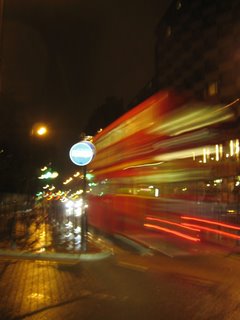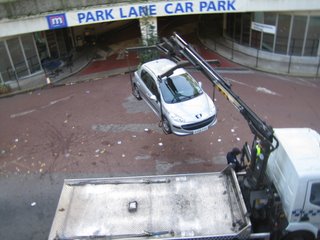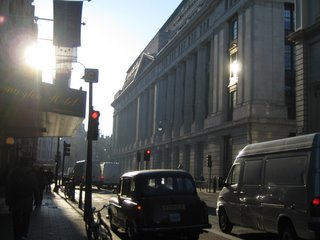“Always remember that I have taken more out of alcohol than alcohol has taken out of me” – Sir Winston Churchill
This topic is one that needs no introduction. To be honest, I have wanted to write about this subject since the first weekend I landed in this country, but never really had what I thought was the right ammunition to be able to properly equip the forces that are needed to go up against this huge topic. But with St Patrick’s Day, the international celebration Irish culture, this past weekend, I thought it fitting to finally bring out the big guns. (I don’t know if you heard, but I did over a thousand). If you know anything about English-Irish relations, you’ll know that they have their differences; but if there’s one thing that can bring them together – a thing that the Irish are known for and something the English are pretty good at it too – it would be this week’s cultural topic of the week:
DRINKING
In one of my first weekends in London, my cousin and I ventured over to a little jazz bar in Primrose hill. Seated next to us was an old man nearly passed out from having drank too much on a Sunday afternoon. Next to him was another group of elderly people going hard with a couple of already empty bottles of white wine laughing and cheering as the musicians played. It was at this moment that I realized why, in my travels, I had always been slaughtered when I went up against brits playing drinking games. Kids drink beer with their parents as young as 8 or 10 and already appreciate a good bitter by the time they reach 12.
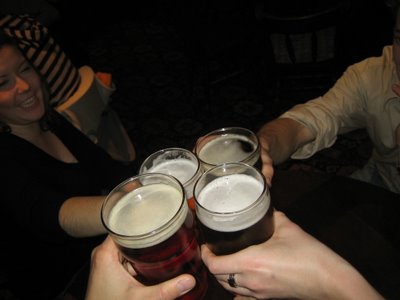
In North America, most kids are exposed to drinking in high school and college, and really don’t understand the concept of moderation. Governments claim it’s an epidemic and that kids should be stopped. I think there’s probably some truth to that, but I also think the best way to stop someone from liking something is to make them overindulge. This, after all, is why I no longer (happily) drink Molson Canadian. Binge drinking is why people don’t like certain drinks. Binge drinking also allows people to (sometimes too often) experiment with their limits. But that’s the bad side of drinking.
Medical studies prove that drinking can help fight heart disease. Psychological studies prove that drinking can relax your nerves. Students and non-students alike can vouch that drinking can be the centre of a social event. Drinking helps people express they way they really feel. I often drink a beer while I’m writing; it’s not that drinking makes me a better writer, but I suppose it may make me a more creative one. Ironically, the one post I actually talk about it, I don’t have a beer on my desk. One thing I’m bad for, and if you have ever been drunk around a computer I know you can relate, is trying to write an email to a girl you like (and I know this happens to some of us more than others). And you will also know, there’s that threshold where you go from all-out confession to complete incomprehensible nonsense, wehren othoing you try ot write mkeas ayn ensse at all…and then what could have been a sweet note just makes you look like a ottal omorn.
In Canada, (excl. Quebec), you can pretty much only buy liquor at liquor stores and in many provinces all stores are government run, highly taxed, and highly regulated. There are different drinking laws from province to province, including age variances, which means that depending on where you are determines whether you can drink at age 18 or 19 and if you are unlucky enough to live in the USA, you can’t legally touch it until three years after you can legally vote, make porn, and fight in the army.
In England there are many options for the acquisition and consumption of liquor. First, off license shops, aka convenience stores, can sell liquor until 11pm and are easily the greatest source for canned beer and bottled spirits. Within a five minute walk of my apartment, there are no fewer than ten off license shops to choose from with varying prices from shop to shop. Grocery supermarkets also sell liquor and often give even better prices than the “offies”. The standard off license price for a tall can of beer (500ml) is around 1GBP.
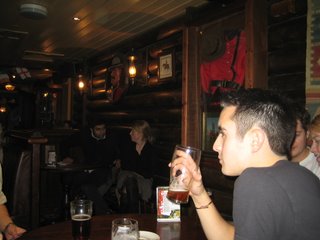
Second, and probably the most popular choice for liquor consumption are pubs. Pubs are usually set up with seating for most everyone, usually offer a reasonably priced, full range of drinks, and will usually offer traditional English pub food, free of cover charge. Pub patrons usually flock in after work and are gone after last call, also at 11pm. Busier pubs may have extended liquor licenses which allow them to stay open later, until 12 or 1am. Standard price for pint of beer 2.50-3.20GBP.
Third, bars are more or less contemporary pubs. The furniture may be more modern, food may not be so English traditional, and the drinks may be slightly higher end. Drinks will cost more, things will look more expensive and the general setting will look slightly more sterile. Most men’s rooms will also have an attendant…which always pisses me off. On Friday, Saturday, and special events, they may also have dance floors. Varying closing times. Standard pint: 3-4GBP.
Last, but not least, clubs are hands down the most expensive way to drink. Invariably, there is a cover charge. Clubs, like they are anywhere, are focused around the DJ or music genre, varying from salsa or swing to trance, house or drum & bass. The music will be the central attraction and it is usually hard to visit. London is renowned as one of the frontrunners in international club culture. Standard drink price: 330ml bottle of beer: 4-5GBP, single cocktail: 5-7GBP.
There are, obviously variations:
- Gastro pubs, similar to pubs, offer a similar setting, but will generally be pricier, will serve a greater selection and will focus on higher end foods.
- Student pubs will offer even cheaper beer and drinks and are ideal for students or budget travelers.
- Superclubs charge mega-pounds to get in, a crapload for coat check, and highly inflated drink prices. Super clubs are mainly designed for those not looking to drink and are more focused on doing drugs and dancing to otherwise undanceable music.

We always learned in economics that alcohol is an inelastic good. What this means is that no matter the price, the general population will continue to consume it, and as the English culture has shown, this is probably true. The English have always had a pretty solid reputation, but for a drinking culture seem to be pretty easy going about the whole subject. The American icon Homer Simpson probably said it best: “To alcohol…the cause of, and solution to, all of life’s problems.”
Before moving, I always shared the title of “drunk cousin” with my cousin, Janis, who also lives here. I earned my title by demonstrating “the shotgun” as my notable skill during a presentation at a family reunion; I’m not sure how long she’s held hers. Anyway, I told you that story to tell you this one: since as long as I can remember, my grandmother has always given me little gifts of money with a nice little note saying “go buy some candy” or “go buy a pop” or something. When I came London she sent us some money, again, but this time the note read: “To Kai and Janis, Go have a drink at a pub!” So though it’s a strange topic to do so with, I’d like to dedicate this post to Grammy.
Cheers.
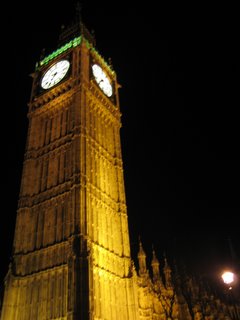 Last week I went to Greenwich, where latitude 0 and 360 meet. I, like everyone, stood on the meridian and had my photo taken and thought I was the coolest person alive as I straddled what may or may not actually be the real meridian…the place where time zero actually exist – give or take zero seconds with a margin of error of zero. But even here, in Greenwich Standard time, they have to change the clocks twice a year…
Last week I went to Greenwich, where latitude 0 and 360 meet. I, like everyone, stood on the meridian and had my photo taken and thought I was the coolest person alive as I straddled what may or may not actually be the real meridian…the place where time zero actually exist – give or take zero seconds with a margin of error of zero. But even here, in Greenwich Standard time, they have to change the clocks twice a year…
 When I went in for the haircut today I followed normal procedure. I went to the same hairdresser that I usually go to get my £6 haircut. Afterwards, I also walked around in Camden and then made my way home. The hairdresser I had today was from South Africa and thought London was “shit” so I asked him why he didn’t just move. He said he was planning on moving to Bristol and asked if I had ever been there. I said no. Then he cut my bangs shorter than they have ever been, and basically butchered the entire operation.
When I went in for the haircut today I followed normal procedure. I went to the same hairdresser that I usually go to get my £6 haircut. Afterwards, I also walked around in Camden and then made my way home. The hairdresser I had today was from South Africa and thought London was “shit” so I asked him why he didn’t just move. He said he was planning on moving to Bristol and asked if I had ever been there. I said no. Then he cut my bangs shorter than they have ever been, and basically butchered the entire operation. 








